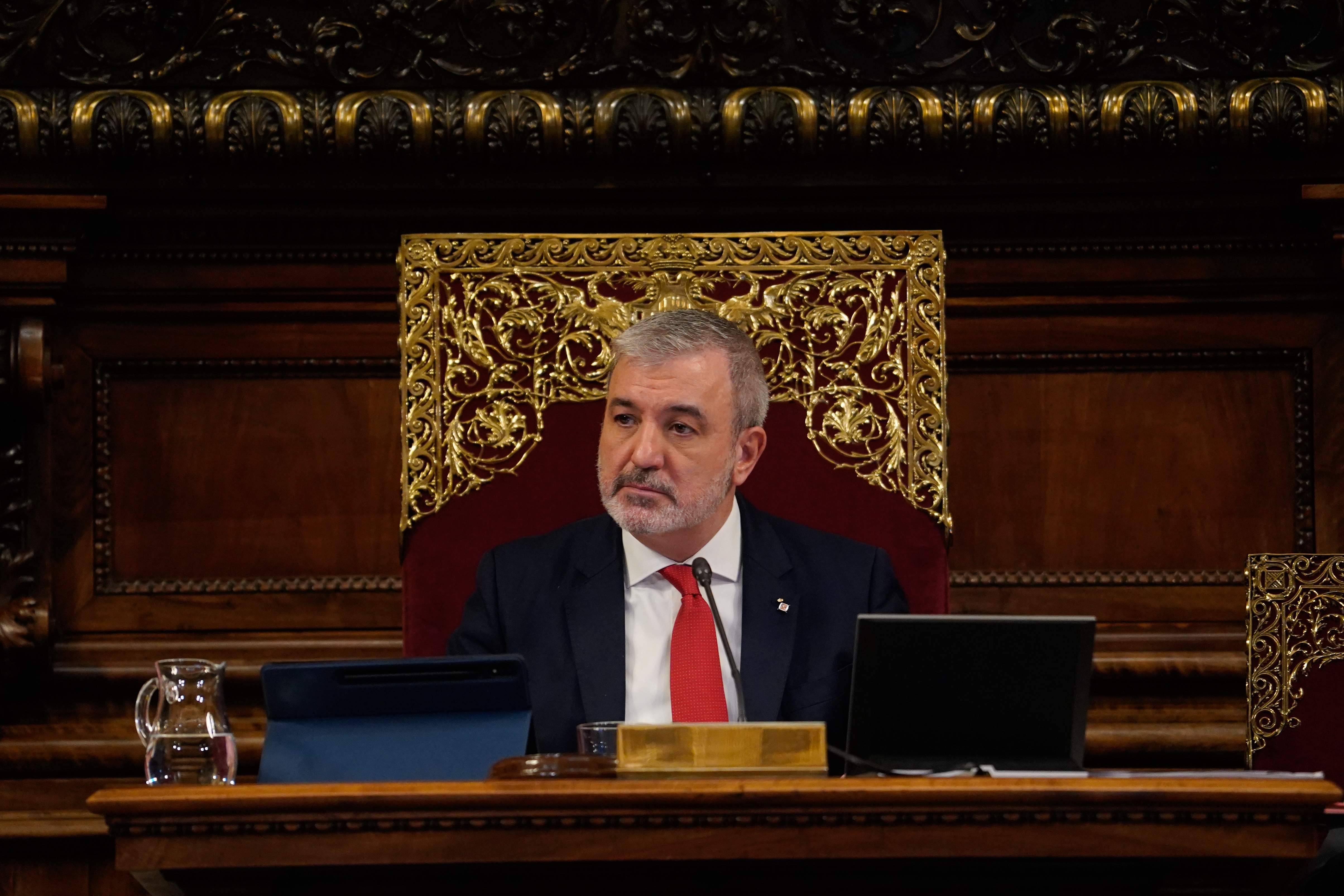Barcelona mayor Jaume Collboni has failed to win approval for the city's 2024 budget at the council meeting held this Friday, leaving him only the option of calling, for March 27th, a special plenary meeting to submit to a question of confidence, which, given that he will almost certainly survive such a vote, will mean the automatic approval of the municipal accounts on May 2nd, as the mayor himself has stated. As expected, the draft budget only had the support of the mayor's Catalan Socialist Party (PSC) and the Catalan Republican Left (ERC), giving 15 votes out of the 41 on council, and was opposed by the other four parties, so that, for the time being, it has been rejected.
At the end of a long debate in which the parties reiterated positions that were already known, mayor Collboni took the floor, reiterating his promise that "Barcelona will have a budget in the spring", and noting that the total spending figure of 3.8 billion euros is "probably the last expansion that can be carried out due to the change in criteria of the European Union". For this reason, in addition to thanking ERC for its support, he announced, with some solemnity, that "Barcelona will have a budget on May 2nd". "I announce the calling of the special plenary session on March 27th to activate the question of confidence", he stated.
After exhausting the last possibilities for an agreement on Thursday, when the municipal government was still trying to convince Barcelona en Comú to support the city accounts, the deputy mayor responsible for finance, Jordi Valls, launched a harsh criticism of Comuns leader Ada Colau, whom he reminded that voting in favour of the budget "is not a blank cheque, it is a cheque to the city". "I regret that today she once again showed her abandonment of Barcelona", he told the ex-mayor, noting that "two budgets have been destroyed", referring to those of the Catalan and Spanish governments: the fall of the former was precipitated by the Comuns refusal to support it, and when this led to the calling of a Catalan election, Pedro Sánchez ruled out attempting to pass the 2024 Spanish budget given his tight majority in Congress and the prospect of electioneering. "They will not do the same with a third budget”, asserted Valls, in an implicit allusion to the confidence vote.
Ramon Tremosa, on behalf of the Junts-oriented Trias for Barcelona group, largest party in the city council, announced the 'no' vote of his 11 councillors, recalling that it is "the same budget as six months ago" and asserting that the mayor "is disorientated, forced to follow others and is more solitary than 10 months ago". For her part, Ada Colau, on behalf of the Comuns, in addition to using part of the time to ask Collboni to be "proactive" in promoting sanctions against Israel, pointed out that the budget is "the economic tool that makes a city model viable, and this model is not clear”.
Elisenda Alamany, leader of the ERC municipal group, defended the agreement with the Socialists stating that "we have agreed a budget that guarantees that the city looks to the future, with progressive policies without leaving anyone behind". Finally, both Dani Sirera, on behalf of the People's Party, and Gonzalo de Oro Pulido, for Vox, reiterated their votes of opposition. Faced with this situation, which was already fully foreseen, Collboni made public the call for the special plenary session, scheduled for next Wednesday.
How does the question of confidence work in municipalities?
Mayor Collboni will thus have to "play his joker" to get the budget passed, resorting to a question of confidence, which is a mechanism designed to guarantee the stability (and the financing) of municipal governments in the Spanish state, since they do not have the power to call early elections if their budgets or other critical votes are, as in the current case of the Catalan government, defeated. It is a provision built into Spain's general electoral law (LOREG), and both the last two Barcelona mayors also used it, Xavier Trias in 2014, and Ada Colau on two occasions, in 2017 and 2018.
But should Collboni's motion of confidence (confiança) be lost next Wednesday, what happens then to the mayor? Almost certainly nothing. In the first place, the LOREG mechanism means that, even if that vote is lost, the budget will be automatically approved anyway a month later. There is one exception, which is if, in the course of that month, Collboni is forced to face a second vote, on a motion of no-confidence (censura). This would mean that another member of the council would have to move such a motion, and win by an absolute majority, to then replace Collboni as mayor.
And the fact is, that due to the fragmentation of the Barcelona city council, Collboni plays with the almost absolute certainty that the opposition will not be able to articulate such a motion. It would require a candidate - and a government programme - that would obtain the votes of at least three parties if Trias for Barcelona and Barcelona en Comú are involved, or four parties if either of the two major opponents are not part of it. Collboni thus plays his joker with the certainty that there is no possible combination that will dethrone him.

